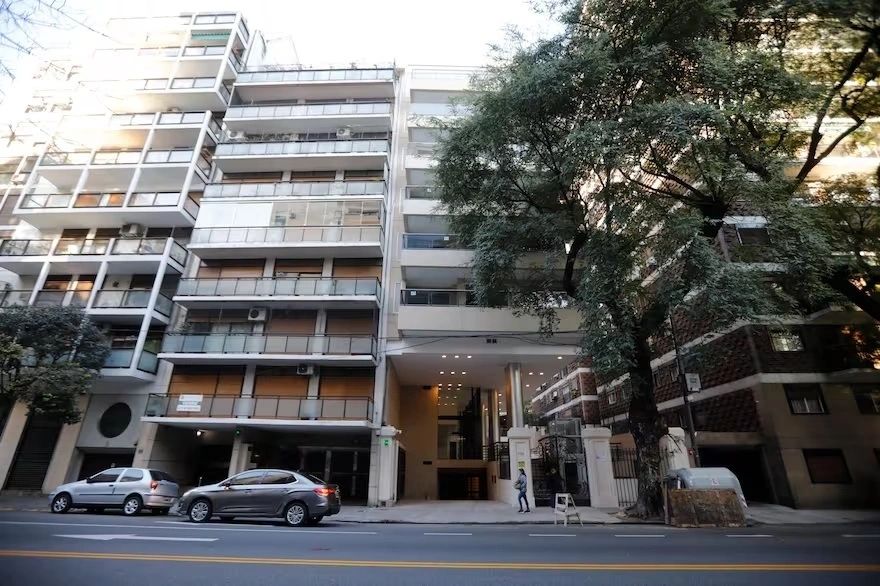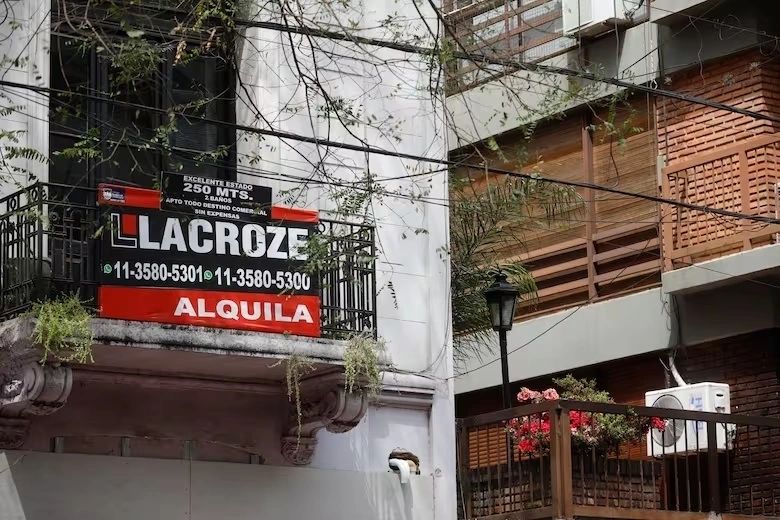BuySellBA
Administrator
Rents: 300% increase in one year and the adjustment in January reaches 145%, what is expected for February and March? - La Nacion Propiedades

Source:
Alquileres: 300% de aumento en un año y el ajuste en enero llega a 145%, ¿qué se espera para febrero y marzo?
El valor promedio del alquiler de un monoambiente en la ciudad de Buenos Aires está muy por encima del salario mínimo y el aumento de precios en los últimos 12 meses supera el 300%
December 28, 2023
The average rental value of a studio apartment in the city of Buenos Aires is well above the minimum wage and the price increase in the last 12 months exceeds 300%
By Carla Quiroga

The increase in the monthly rental amount in January 2024 will be 137.5% and at the end of that month it will reach 145%
The early materialization of President Javier Milei's promise to repeal the Rental Law marked a milestone in the real estate market. This event took place last week with the signing of the Decree of Necessity and Urgency (DNU), whose purpose is to deregulate fundamental sectors of the economy, focusing especially on the rental market.
This milestone not only captured the attention of the various actors in the sector, but also triggered a scene of significant expectations and debates. According to a recent survey carried out by Reporte Inmobiliario, 86.4% of participants celebrate this measure, , considering it a necessary change.

President Javier Milei announced a Decree of Necessity and Urgency (DNU) that eliminates numerous laws and regulations to deregulate the economy, including the rental law.
The essence of this new provision implies that, starting next Friday, December 29, rental contracts will be governed by the regulations of the National Civil and Commercial Code, with certain applicable modifications. This provisional legal framework will come into force until legislators analyze the DNU, make a decision and determine its future in the legislative process.
Among the highlights of the new law is flexibility in the duration of contracts, the possibility of adjustment in rental values by agreement between the parties, as well as the option of making contracts in pesos, dollars or other agreed foreign currency.

The President's repeal of existing law does not retrospectively affect existing contracts.
Consequently, there are currently three completely different rental contract situations that deserve to be highlighted:
- Those who still have three-year contracts started between July 2020 and October 18, 2023 with prices that are updated annually according to the Lease Contract Index (ICL), which merges salary and inflation data and is published by the central bank
- The contracts signed from October 19 to December 29 with changes to the law, among them that the index to be taken is Casa Propia and the adjustments are semiannual
- Tenants who are now looking for a property to rent will be under the terms of the DNU that will come into force this Friday with the repeal of the law and the application of the Civil and Commercial Code
In this context, it is crucial to emphasize that the repeal of the existing law by the President does not retrospectively affect current contracts, which will continue to be adjusted according to the Lease Contract Index (ICL) or the Own Home coefficient until their expiration, depending on when the contract was signed.
How much will rents be adjusted in January, February and March?

Rents in January will have an increase of 137.5% year-on-year.
This scenario poses a significant dilemma regarding expectations for how rents will behave in the first months of 2023.
Tenants who formalized residential rental contracts one or two years ago, which are subject to annual updates through the Tenancy Contract Index (ICL) and whose agreements remain in force until their expiration date, will face an adjustment next month of the amount of their rent with an increase of 137.5% in interannual terms.
In practice, this means that the rent of an apartment that was $150,000 until December will experience an increase that will take it to $356,250 from January 2024 to 2025.
Federico González Rouco, an economist specialized in the real estate market, clarifies that in the first two cases (those contracts under law 27,551 of 2020 and law 27,737 with changes last October), the increases always lag behind the inflation rate. . “They are running behind, especially with Casa Propia, because it takes time to absorb the inflation number and has a limit when it comes to taking the increase in salaries,” mentions the specialist.

Those who signed a rental contract between October 19 and December 29 will experience their first update, at the earliest, starting in April 2025.
In concrete numbers, González Rouco anticipates that those who experience an annual rent increase in January could face increases of up to 145% by the end of the month. . This range varies depending on the specific day the increase is applied. In February, increases of 160% are expected, followed by a 190% increase in March. These forecasts occur in the context of an economy that, for the third month of 2024, projects an increase in interannual inflation of more than 200%.
Rouco emphasizes that this situation is due to the lag in the formula, which uses data delayed by two months and does not even reflect the impact of the devaluation and other factors that may arise.
On the other hand, those who have signed a rental contract between October 19 and December 29 will experience their first semi-annual update, at the earliest, next April. This update will be linked to the Own Home Index instead of the ICL, which is used by the Ministry of Territorial Development and National Habitat in the Procrear II plans. The aforementioned formula takes into account the lowest index between salary variation and inflation in the last year.
The rental value above the minimum wage

The minimum wage, set at $156,000, barely covers 62.4% of the total cost of a rental.
Rents in the city of Buenos Aires experienced a dizzying increase, even exceeding 300% in the last year, placing it significantly above the year-on-year inflation rate, which reached 160.9% in November. This disparity is particularly evident when considering that, in December, the minimum wage is no longer enough to cover the average rental of a studio apartment, covering only 62.4% of said expense.
According to the report provided by the Scalabrini Ortiz Center for Economic and Social Studies (CESO), in December the minimum wage set at $156,000 barely covers 62.4% of the total cost of renting a studio apartment. This figure represents a marked decrease compared to the previous year, when said income was enough to cover 96.5% of the cost of a rental.
The prices offered for apartment rentals -not counting expenses- in the city of Buenos Aires are the following:
- Studio apartment: $250,000;
- Two rooms: $300,000;
- Three rooms: $470,000.
The report highlights an increase of 284.6% in the offer price of studio apartments and two rooms in CABA in the last 12 months. While those in three environments registered a more pronounced increase, reaching 308.7%.
These increases are, in part, linked to the repercussions of the recent update of the law in October, which generated a complete break in the pricing logic. The new law prohibited publication in dollars, which led most advertisements to invite “check price” in order not to publish in dollars. Even some prices already published in dollars were “pesified” according to the price of the blue dollar, giving rise to rental publications of one million or two million pesos, which contributes to further inflating the market, according to the analysis of Gómez Picasso, founder of Real Estate Report.

Experts expect increases in contracts to track inflation over time.
However, according to data provided by Soledad Balayan, owner of Maure Propiedades, in the third quarter of 2023, rental ads in pesos received 7.4 times more queries than those in dollars. Although this figure is below the 2018-2020 period, when ads in pesos generated 13.6 times more interaction, it demonstrates the current preference for the local currency.
Regarding future projections, González Rouco believes that by repealing the rental law, the values will follow the dynamics of the blue dollar, the cash with settlement or the MEP. Although an increase is expected, it is not expected to be as pronounced as in the official market. He considers that “the announced measures aim to reduce the gap,” although he highlights that “uncertainty persists in any scenario.”
Gómez Picasso also estimates that the liberal rental policy will calm the price increases that the market has been registering . “Values are not going to stop rising because there is inflation, but surely the increases are going to be more moderate than they would be if the law remained in force,” he says. He explains that this occurs because as until now the adjustments did not keep up with inflation , the owners prevented the liquefaction of the quota by raising the initial price of the contract. So now they would stop anticipating price increases and instead index the contract to keep up with inflation over time.
www.buysellba.com

